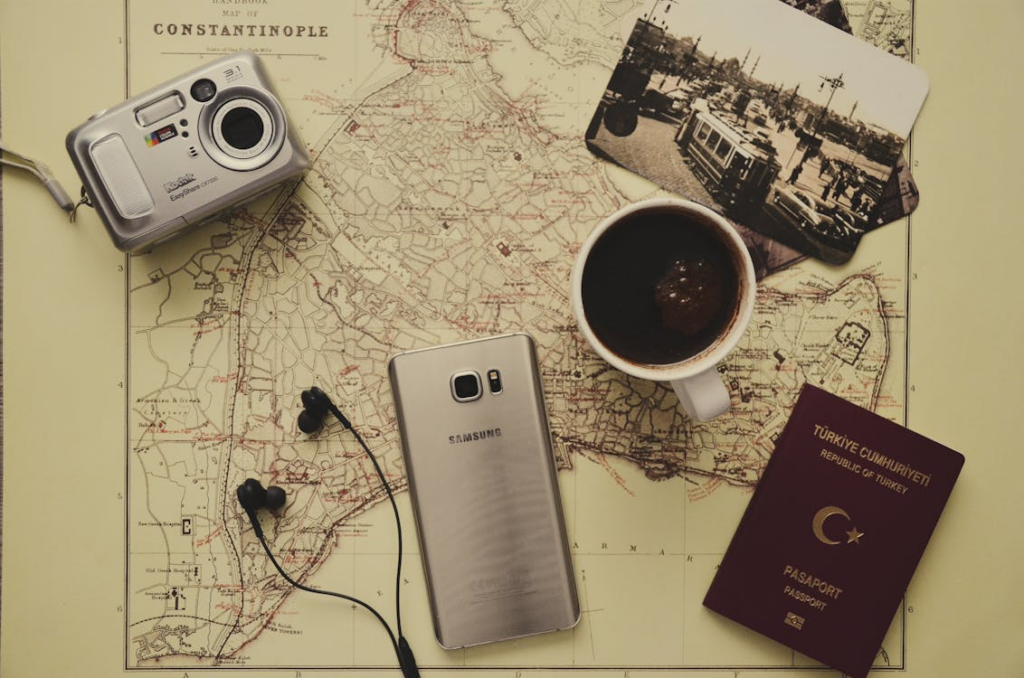THE TECHNOLOGICAL AFFECT ON TRAVEL

Travel, once an arduous journey marked by uncertainty and adventure, has undergone a remarkable transformation thanks to the integration of cutting-edge technology. From trip planning to navigation, accommodation, and immersive experiences, technology has seamlessly woven itself into the fabric of travel, enhancing every facet of the journey.
In the not-so-distant past, planning a trip meant poring over guidebooks, relying on travel agencies, and navigating with paper maps. Today, the digital revolution has placed a universe of information at our fingertips. With a few clicks or taps, travelers can explore destinations, read reviews, and curate personalized itineraries using a plethora of travel apps and websites.
The advent of smartphones has been a game-changer, empowering travelers with instant access to a wealth of resources. GPS navigation apps have rendered the fear of getting lost nearly obsolete, guiding travelers through intricate city streets or remote hiking trails. Real-time updates on flight schedules, weather forecasts, and transportation options provide a level of convenience and assurance unimaginable in previous eras.
Booking accommodations has evolved into a seamless experience with online platforms offering a myriad of choices, allowing travelers to browse, compare prices, and read reviews before making reservations. The sharing economy has further revolutionized travel with platforms enabling individuals to rent homes, rooms, or even unique accommodations directly from hosts, fostering a sense of authenticity and local immersion.
Immersive experiences have also been amplified through technology. Virtual reality (VR) and augmented reality (AR) technologies offer glimpses into destinations, allowing travelers to preview attractions, hotels, and even experience cultural events before stepping foot on foreign soil. This not only enhances anticipation but also assists in making informed decisions about destinations and activities.
Language barriers, once a significant hurdle for travelers, have been mitigated with translation apps that instantly interpret spoken or written language. This breakthrough has not only facilitated communication but also encouraged cultural exchange and deeper connections between travelers and locals.
Furthermore, social media has emerged as a catalyst for inspiration and exploration. Travel influencers and user-generated content on platforms like Instagram, YouTube, and travel blogs provide insights, tips, and inspiration, encouraging travelers to explore new destinations and activities.
Sustainability, a growing concern in the travel industry, has found an ally in technology. Eco-friendly travel options, carbon footprint calculators, and platforms promoting responsible tourism have gained momentum, encouraging travelers to make conscious choices and reduce their environmental impact.
Even during unforeseen circumstances such as global pandemics, technology has played a crucial role in ensuring travel safety. Contactless transactions, health tracking apps, and enhanced sanitation measures have become standard practices, promoting safer travel experiences.
As technology continues to evolve, the future of travel promises even more innovation. Concepts like artificial intelligence (AI) assisting in personalized trip planning, the integration of blockchain for secure and transparent bookings, and the proliferation of smart travel gear herald an era where travel becomes not just convenient but truly transformative.
In conclusion, technology has ushered in an era of unparalleled convenience, accessibility, and innovation in travel. It has transcended boundaries, enabling individuals to explore the world with ease while fostering cultural exchange and understanding. As we embark on journeys shaped by technological advancements, one thing remains certain—technology has not just improved travel; it has transformed the very essence of the travel experience itself.



